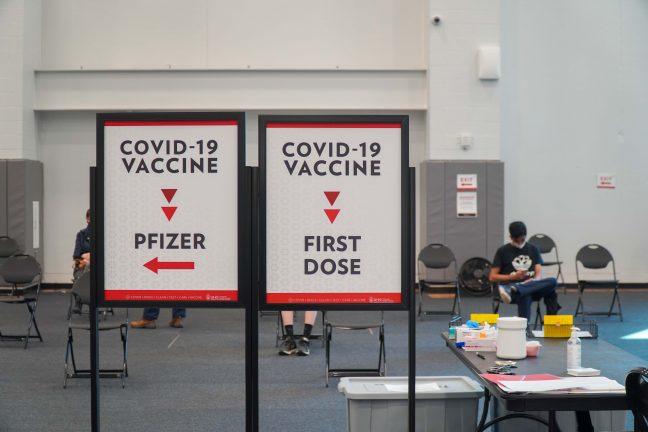We have experienced four school semesters tainted by COVID-19 and the policies the federal government, Wisconsin, Madison and the University of Wisconsin have put on us. If these policies are ever going to stop, they should stop now. Enough is enough.
We have all felt the effects of the changes in policies designed to protect us from COVID-19. It began with virtual learning when we lost all opportunity to see our teachers and classmates face to face. Despite in-person classes resuming, our faces continue to be obscured as a result of lingering mask mandates. At some point, all of these restrictions must come to an end.
Though these policies have been set in Madison for almost two years, there are some advocating to keep them around longer. The Teaching Assistants Associate, a labor union for graduate employees, advocated for the school to return to online classes for the first two weeks of the semester.
“We are less than a week away before @UWMadison puts tens of thousands of students in classrooms with campus workers,” the TAA said on Twitter in January. “All while a more transmissible variant of COVID ravages the state. The situation is bad, and in-person instruction is a mistake. Repeat: This. Is. A. Mistake.”
Even as Dane County’s mask mandate will expire at the end of the month, UW has not yet made a decision about their mandate also poised to expire the same day. And while the TAA is voicing the concerns of their constituents, the data shows COVID-19 has done minimal damage to Wisconsin — specifically since the vaccine — in terms of severe illness and death. Bad policies in response to the virus could be even more detrimental.
According to the Wisconsin Department of Health Services, as of Jan. 14, 3.6 out of every 100,000 vaccinated people in Wisconsin have died of COVID-19. These rates are low, and even if lockdowns or going to online instruction work, we must consider the negative mental and physical health effects previous lockdowns have created.
One of the biggest issues resulting from the lockdowns is the number of drug overdoses. According to the CDC, overdoses have also gone up around 41% in Wisconsin from April to June 2019 and the same time period in 2021.
This three month period accounts for more deaths than the entire number of vaccinated COVID-19 deaths in Wisconsin. In addition, suicides nationwide have also gone up from 2019 to 2021 by around 4%, which is 13.9–14.5 suicides per 100,000 people.
It would obviously be ideal to have a zero percent death rate from COVID-19, drug abuse or suicide, however, it would appear that all directions forward lead to some negative consequence. The isolation as a result of the proposed lockdowns would have demonstrable effects on students, which lockdown advocates don’t seem to acknowledge.
In addition, we need to consider the mental health of students even if it doesn’t lead to something as extreme as drug overdose or depression. While some may argue mental health shouldn’t be considered because depression isn’t as serious as death, considering the massive change in rates of these conditions over the course of the pandemic, they need to be a factor when considering policy changes.
And while the TAA is not calling for government or UW physical lockdowns, a switch to virtual learning did result in dorm lockdowns that quarantined students in Witte and Sellery for two weeks in 2020. At some point, the question must be asked: when in the future will these measures no longer need to be taken?
The omicron variant has a much lower death rate than previous variants of the virus. According to a study out of UC-Berkeley with 70,000 people, Omicron had a 91% percent lower death rate than Delta.
Furthermore, because of COVID-19’s high transmissibility rate — which increases the chance of mutation — Omicron will most likely not be our last variant. Requiring students to go virtual now could mean this reaction becomes standard protocol any time a new variant comes along.
This is not a feasible long term solution if we want functioning in-person schools or a thriving economy.
Don’t let unjustified skepticism stop you from getting COVID-19 booster
Life is all about risk and reward. We risk getting hit by a bus walking to school, getting into a car accident while driving, getting sick by going out and meeting people. Every decision, no matter how small, comes with a risk.
We want to mitigate COVID-19 deaths, but that doesn’t mean we can institute any policy that could prove effective without thinking of its larger impact. Every policy needs to consider the bigger picture and society as a whole.
In-person school is better. Working in person is better. Seeing, talking and laughing with friends in person is better.
Jonathan Draeger (draegerrrr@gmail.com) is a freshman studying economics and pursuing a certificate in German.


